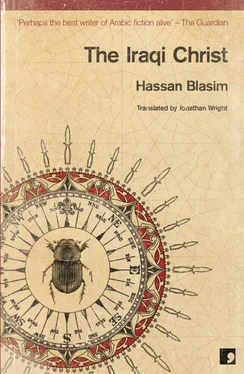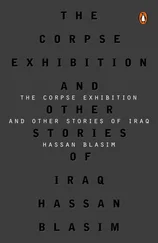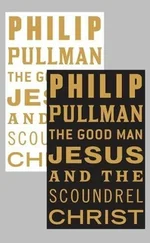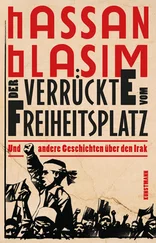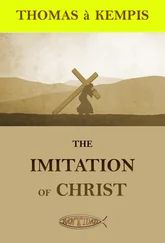Between us we smoked nine cigarettes while listening to the story about the Pakistani. Murad Harba spat out his tale in one burst, then drank from the bottle of water next to him, cursing God. Abu Hadid took his pistol out of his belt and started to load it with bullets. The story about the Pakistani had no effect on me. I was entranced by the company of my brother Abu Hadid and by the chance to enter his various worlds. We turned off into an extensive park with bare trees like soldiers turned to stone. Murad switched off the engine. My heart was starting to pound and I was curious to find out what they would do in the darkness of the cold park. Obviously we hadn’t come all this way to listen to the story about the Pakistani. We got out of the car. Abu Hadid looked around while Murad Harba opened the boot of the car and took out a pick and shovel. Abu Hadid ordered me to help Murad dig. My blood began to race with excitement and fear. Abu Hadid, with his strong muscles, helped with the digging. We began to sweat. The ground was tough. The tangled roots of a tree and a large stone hampered our work. Before we’d had time to catch our breath, Murad and Abu Hadid headed back to the boot of the car, while I stood close to the hole, bewildered like a deaf man at a wedding party. They took a man, bound and gagged, out of the boot and dragged him along the ground to the hole. My brother told me to come close and look into the man’s eyes. The look of fear I saw is stamped in my memory as though with a branding iron. Abu Hadid kicked him in the back and the man slumped into the hole. We shovelled soil on top of him and levelled the ground well.
Abu Hadid gave my hair a sharp tug and whispered in my ear:
‘Now you’re God.’
5Muezzin — the person who calls muslims to prayer from the minaret.
Why Don’t You Write a Novel, Instead of Talking About All These Characters?
We brought a half-naked Afghan corpse with us. Adel Salim and I dragged it for three cruel nights through a forest that appeared to be endless, with no way out. Adel had taken off the Afghan’s black shirt and I’d tied his feet together with the sleeves. It was the last forest before the Romanian-Hungarian border. After ten yards the shirt had torn and from then on we had to drag him by the arms. It had been snowing since we crossed the river, but lying there on that final night, I forgot all this and dreamt I was sleeping in the cells of my military unit from the war days. At dawn we woke to the sight of Hungarian army dogs sniffing the Afghan’s corpse.
Your name?
Salem Hussein.
Age?
Thirty.
The woman made a hand gesture, telling me to take off my underpants. Yesterday they took our stool samples, today they’re examining our skin. She made a note in the papers in front of her, then made a little upward gesture with her finger. I pulled up my underpants. She waved towards the door without looking up at me. I put on the rest of my clothes. Adel Salim came in after me, then a tall young Nigerian called James. He was wearing summer shorts with a smiley face printed on the backside and a thin shirt in the colours of the Jamaican flag. He protested to the escort when she told him he couldn’t go outside for a smoke. The only ones left were the Moroccan, and an old Kurdish man and his wife. We were a new group of inmates. We had reached the hospital early in the morning escorted by a pretty young woman called Anisa from the refugee reception centre. She was an Albanian who had got a job at the centre after living there as a refugee for five years and, in the meantime, had become fluent in Hungarian. We were each given a container for a stool sample and a plastic tube for urine. The Moroccan stood up and undid his trouser belt a little, tucked in his red sports shirt and then fastened the belt tight. James the Nigerian came out of the doctor’s room ecstatic, and pulled the cord of his shorts, as if he had just come out of a prostitute’s room. Anisa said the nurse would come soon to collect the urine and stool samples and she hoped the tests would go well. Out of the blue she told us what had happened to the previous group. That was a month earlier. She said they were ten young Somali men with a young boy. One of them took all the stool containers and filled them himself, while the others only filled the urine bottles. Of course in the laboratory they could easily tell that all the stool samples came from one man. When they were challenged on this, the Somalis pleaded that they couldn’t find any other way to fill the containers. They said they struggled to procure a sample from the Western-style toilets because the shit bobbed about in the water and it was hard to fish it out. So one of them took on the task. He shat on the bathroom floor and with that filled all the containers easily, including the boy’s.
Adel Salim and I had arrived three days after the others. They gave us a quick interrogation at the army post on the border and in the morning they sent us to a refugee reception centre in a border town. I don’t know where they took the corpse of the Afghan. They told us that after the medical tests the police and the immigration department would question us again on the details of how he died. They put us in the quarantine section of the reception centre, a small building attached to the main centre where the rest of the inmates were staying. The Hungarians call it the ‘karanten’, similar to the Iraqi version of the word — ‘karantina’. It was dirty and crowded with Afghans, Arabs, Kurds, Pakistanis, Sudanese, Bangladeshis, Africans and some Albanians. The tests went on for a month. The frightening aspect of the quarantine section was the results of the medical tests, because some of the refugees had tuberculosis or scabies. Those ones were transferred from the quarantine section to the isolation hospital on the outskirts of the town. They would stay there until they were cured. That is what most of the new inmates feared most: not the disease but the time they would need to stay for treatment, which could be more than a year and a half. The Iraqis and Iranians made fun of tuberculosis and scabies because they thought they only infected Bangladeshis, Pakistanis, Afghans and Africans. In fact the test results seemed to confirm this, and the diseases of the Iraqis, the Iranians and the Kurds proved to be exclusively venereal, in particular gonorrhoea, which could be treated within the reception centre.
We had crossed the Romanian-Hungarian border with a professional trafficker. At dawn he’d told us that the fog had started to thicken and we would have to stick together to reach the river and then cross the river into Hungarian territory. The trafficker said he had no obligation to wait for anyone who stopped walking and we would keep going until the fog lifted. We did our best to keep up with the trafficker. We swore to the interrogators that the Afghan died crossing the river. He had been very ill, and he soon drowned and we couldn’t save him, but the medical reports showed he had died of strangulation. I told them honestly and faithfully what had happened that foggy morning. The trafficker had lost his way (that’s what he told us), so he said we had to spend the night in the forest. We got into our sleeping bags, shivering from the cold — you can ask James the Nigerian, the Moroccan or the old Kurd, because they crossed before us and they explained what happened next when we met them in the quarantine centre. It was a shabby trick. The trafficker knew that the river was one kilometre from the forest, but the boat that one of his assistants from the Romanian border villages had left for us would only hold five people, so the trafficker would have to abandon three of us. I’m sure he was aware of the boat problem in advance, before the journey even began in Bucharest. The trafficker waited till about half an hour after we had got into our sleeping bags, then started going round the group, kicking each one gently, in the expectation that only some would wake up. This selection method of his succeeded. Adel Salim, the Afghan and I were fast asleep, while the others were dozing or couldn’t sleep at all for the cold. So they left us in the forest, dead to the world. When we woke up we realised we’d been tricked. We started looking for the river so we could cross into Hungary ourselves. God started making the fog even thicker. He seemed to be doing it deliberately. Hours later we reached the river. The cold had exhausted the Afghan and he no longer had the strength to walk. He had a raging fever. Adel very much liked the Afghan, and the two of us carried him. The poor man had stuck with us and become a companion and a brother since we met him crossing the mountains on the Iranian-Turkish border. Adel asked me to cross the river first, to try out the crossing, and then call them from the other bank to explain to them how to cross without getting lost in the fog. Adel said he would help the Afghan by himself. Shivering from the intense cold, I shouted out to Adel from the far bank. Then I heard him jump into the water with the Afghan. I shouted out to show them the way and after a while I heard them splashing around in the water. Adel shouted that the Afghan had started to drown. I shouted out again, begging him not to abandon him. The sound of them splashing in the water quickly grew louder, then suddenly everything was quiet. I was about to jump back into the water to help them when I saw Adel emerging from the fog, pulling the Afghan after him, dead. Adel burst out crying and I decided not to leave the Afghan’s body, although Adel objected at first.
Читать дальше
